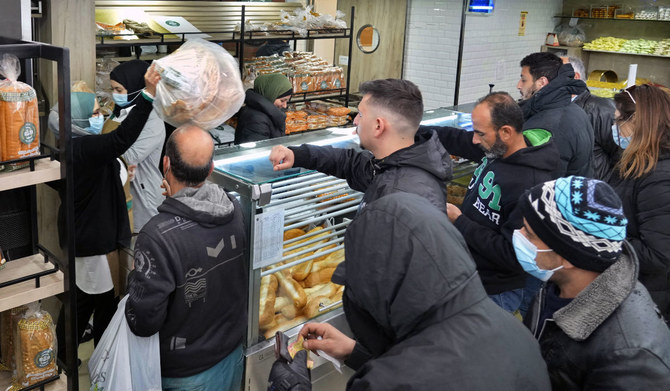
- ARAB NEWS
- 05 Jul 2025

BEIRUT: Lebanon’s caretaker social affairs minister has voiced concern over the ministry’s inability to help thousands of needy families due to the international community’s decision to reduce assistance.
“This is Lebanon’s punishment after it received over 2 million displaced people and migrants on its territory without any conditions or restrictions,” Hector Hajjar told a press conference.
He called on everyone to protest “without exception against this decision.”
Hajjar highlighted the motives for “reducing funding for the national program to support the poorest families, and its impact on the number of beneficiaries and the safety program.”
It was meant to reward Lebanon for accepting the highest number of refugees in the Arab region and was adopted by the World Bank and donor countries.
“However, we do not benefit from this program anymore as the funds come from donors to global aid agencies,” the minister said.
He added: “In mid-December 2023, the World Food Program asked us to meet with donor countries.
“The aim of their meeting was to say that donor countries were supposed to get $147 million to help 75,000 Lebanese families.
“However, the amount available with them is $33.3 million for 2024.
“This has surprised the Lebanese people and me,” the minister said.
According to the Ministry of Social Affairs, poverty “increased in Lebanon to 55 percent from 28 percent before 2019.”
The ministry reported that 82 percent of Lebanese households were experiencing multi-dimensional poverty, which went beyond financial poverty and included the inability of people to meet their basic needs in all areas of life.
Hajjar said: “For two and a half years, we worked on the reforms requested by the international community.
“They asked us to consolidate data and mitigate mistakes to work on better automation and transparency, so I set a date to complete the consolidation process on June 1.”
He added: “They asked for Lebanon to be like the other countries with challenges in aid distribution, so we decided to adopt a consolidated social register.
“Every Lebanese will have a consolidated social record, financial and social numbers for the first time this year.
“They asked us to prepare a national strategy for social protection, so we set out and issued a strategy for social protection. The Cabinet signed the strategy, and it is yet to be launched.
“They asked us to adopt automation, so we did with a sovereign vision. Is funding the problem today or something else? I think it is something else.”
Addressing the donor countries, Hajjar said: “What has changed in Lebanon’s situation for you to make this decision? Lebanon’s situation has worsened at this point.
“Today, the south is on fire, and the number of needy families exceeds 80,000.
“What is happening in the south with the disruption of the economic cycle, and the displaced people increased the number of the poor. Has the issue of Syrian refugees on Lebanese territory been resolved?”
He added: “Although our economic, living and security situation is worsening, we get notified in mid-December of a decision that will take effect at the beginning of 2024.
“This decision has its risks, motives and its disadvantages.”
Hajjar warned of a “problem and a threat to social security in Lebanon.”
The fear of a social crisis resurgence and the possibility of an impending economic downturn is causing concern for Hajjar.
Depositors whose funds have been frozen in banks since 2019 are worried by attempts to write off these deposits.
Dozens of depositors responded to the Depositors’ Outcry Association call to protest on Friday morning in front of Banque du Liban, known as BDL, blocking roads.
They voiced their opposition to the banks’ policies that have frozen their deposits, and called on the acting governor of the Central Bank to “pay all reserves to depositors.”
Alaa Khorchid, head of the association, rejected “the government’s policy regarding the depositors’ fund.”
He said: “We reject the government’s malicious plan to write off people’s money; our money is a red line.”
Caretaker Minister of the Displaced Issam Sharafeddine participated in the protest.
He announced: “We reject any draft legislation that does not restore the depositors’ rights.
“The Cabinet will not approve any bills causing delays in their rights. A law should be enacted to preserve deposits while restructuring and restoring things to normal.”